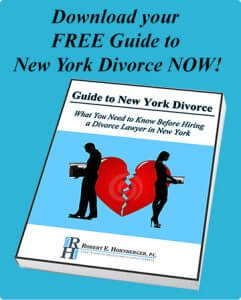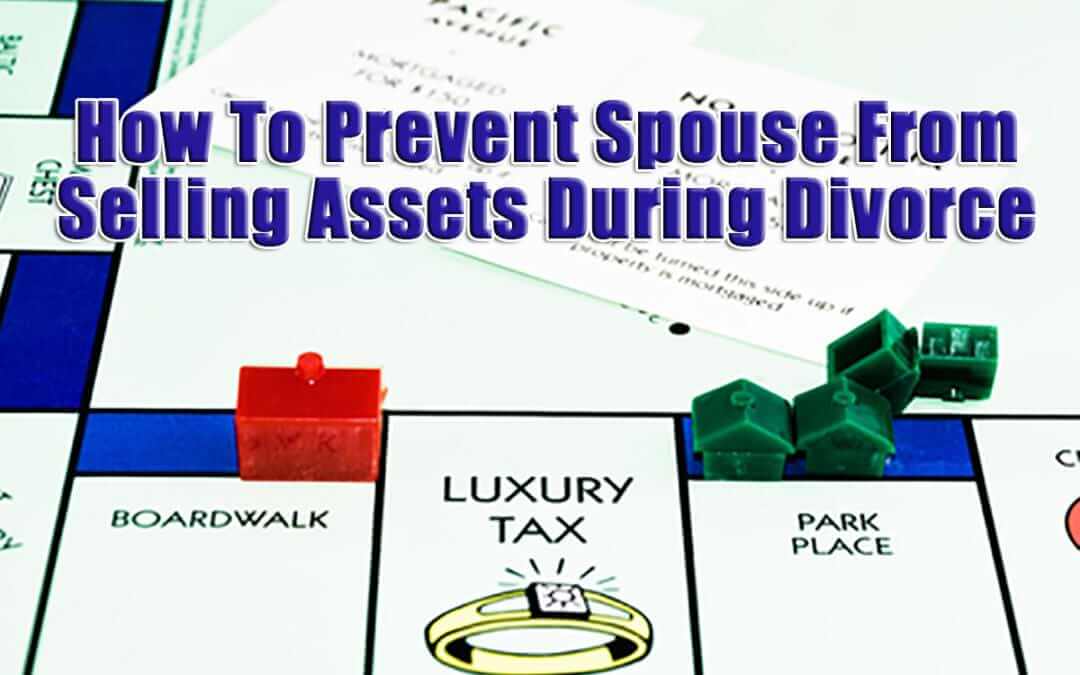To protect my clients during the divorce process from a spouse selling assets, one of the first things I do when I commenced a divorce proceeding as a divorce lawyer practicing in Nassau County and Suffolk County on Long Island, is ensure that the initial divorce papers are filed with an automatic restraining order on finances and property. This order tells the parties to refrain from altering their financial position by selling, transferring, or mortgaging property during the divorce process and is binding on both the plaintiff and the defendant. The Domestic Relations Law in New York allows for this automatic stay in all matrimonial actions.
This order stays in effect throughout the course of the divorce process, unless it is modified, terminated or amended by the court or by the signed agreement of both parties. The language of the order is set forth in the statute (D.R.L. § 236(B)(2)(b)), and reads as follows:
-
Neither party shall sell, transfer, encumber, conceal, assign, remove or in any way dispose of, without the consent of the other party in writing, or by order of the court, any property (including, but not limited to, real estate, personal property, cash accounts, stocks, mutual funds, bank accounts, cars and boats) individually or jointly held by the parties, except in the usual course of business, for customary and usual household expenses or for reasonable attorney’s fees in connection with this action.
-
Neither party shall transfer, encumber, assign, remove, withdraw or in any way dispose of any tax deferred funds, stocks or other assets held in any individual retirement accounts, 401K accounts, profit sharing plans, Keogh accounts, or any other pension or retirement account, and the parties shall further refrain from applying for or requesting the payment of retirement benefits or annuity payments of any kind, without the consent of the other party in writing, or upon further order of the court.
-
Neither party shall incur unreasonable debts hereafter, including, but not limited to further borrowing against any credit line secured by the family residence, further encumbrancing any assets, or unreasonably using credit cards or cash advances against credit cards, except in the usual course of business or for customary or usual household expenses, or for reasonable attorney’s fees in connection with this action.
-
Neither party shall cause the other party or the children of the marriage to be removed from any existing medical, hospital and dental insurance coverage, and each party shall maintain the existing medical, hospital and dental insurance coverage in full force and effect.
-
Neither party shall change the beneficiaries of any existing life insurance policies, and each party shall maintain the existing life insurance, automobile insurance, homeowners and renters insurance policies in full force and effect.
During Divorce Process You’ll Need Court Approval to Sell Any Assets
The objective of the order is to preserve the status quo while a matrimonial action is pending. The order also ensures that the burden of making substantial changes to finances or property during a divorce proceeding is on the party seeking to make that change. The party who wishes to sell or transfer property must then ask the court to modify or vacate the order, and the court will make a determination based on the specific facts and circumstances set forth by that party.
If You Violate, Court May Count It As a Distribution
The court will consider any violations of this order when making its determination about equitable distribution of property. For example, if the court determines that property was transferred or concealed to avoid its equitable distribution in divorce, the court may nevertheless consider its value when distributing property.
Assets Include Both Marital and NonMarital Property
Furthermore, it is important for clients to understand that, while there is a difference between marital and nonmarital property, these orders apply to both types of property. This is because there are often disputes as to whether property is marital or separate, and ideally these disputes will be resolved prior to any transfers or changes to assets. Separate property is not exempted from this automatic order.
The automatic orders serve as a litigation hold on divorces. They are rather broad in scope, as they prohibit any activities by which one spouse might try to disadvantage the other with respect to division of marital assets, or try to diminish his or her financial responsibilities to their ex-spouse, children, or creditors. By preserving the status quo of the assets at stake in the divorce, the automatic order preserves the court’s ability to make the most just and equitable determinations when it comes to division of property and determining other financial issues in divorce.
During Divorce Process, Long Island Divorce Lawyers Protect Your Interests & Assets
The experienced Long Island Divorce Lawyers of Robert E. Hornberger, P.C. protect our clients through all types of divorce litigation and mediation in New York. If you are involved in a divorce proceeding and have concerns about your marital or nonmarital property, contact our office today at 631-923-1910for your free divorce consultation.
 Download our Free New York Divorce Guide
Download our Free New York Divorce Guide
Our 41-page “Guide to New York Divorce: What You Need to Know Before Hiring a Divorce Lawyer in New York” written by an experienced family law lawyer, Long Island’s Robert E. Hornberger, Esq., provides you with real information on the divorce process and the laws it rests upon in the state of New York. This book will help give you a solid foundation upon which you can begin the process of making your family’s, life better. Download your Free Guide to New York Divorce here.





